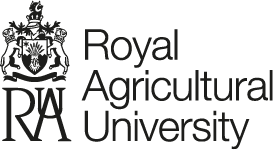Agroecology: Sustainable Farming for a Greener Future
Welcome to the Agroecology course page, designed specifically for Indian students aspiring to study abroad. In an era where sustainable agriculture is crucial for global food security and environmental conservation, Agroecology offers a transformative pathway. This interdisciplinary field combines ecology, agronomy, and social sciences to promote farming systems that mimic natural processes, reduce chemical inputs, and enhance biodiversity. For Indian students, who come from a nation deeply rooted in agriculture—where over 50% of the workforce is engaged in farming—studying Agroecology abroad can bridge traditional knowledge with cutting-edge global practices, addressing challenges like soil degradation, water scarcity, and climate change.
Agroecology emphasizes holistic approaches to food production, empowering communities to build resilient agricultural systems. Whether you're passionate about organic farming, rural development, or environmental policy, this course equips you with the skills to make a real impact. Pursuing it abroad exposes you to diverse ecosystems and innovative techniques, fostering a global perspective that can revolutionize India's agrarian landscape upon your return.
Why Study Agroecology Abroad?
Studying Agroecology in countries like the USA, Canada, Australia, or European nations provides access to world-class research facilities, field labs, and international collaborations. Indian students benefit from exposure to advanced technologies such as precision agriculture and agroforestry, which are vital for tackling India's issues like monsoon-dependent farming and pesticide overuse. Abroad, you'll engage in hands-on projects in varied climates—from temperate zones in Europe to arid regions in Australia—gaining insights that complement India's tropical agriculture.
Moreover, international programs often include internships with NGOs, agribusinesses, and governments, offering networking opportunities that are scarce in domestic settings. With India's push towards sustainable development goals (SDGs), especially SDG 2 (Zero Hunger) and SDG 13 (Climate Action), an Agroecology degree from abroad enhances your employability in sectors like policy-making and agrotech startups.
Course Overview
Agroecology programs typically span 1-2 years for master's levels or 3-4 years for bachelor's, blending classroom learning with practical fieldwork. Core themes include ecological principles in agriculture, sustainable soil management, and agroecological transitions. Programs are offered at universities renowned for their agricultural sciences, ensuring a rigorous curriculum aligned with global standards.
Key Modules Covered
- Ecological Foundations of Agriculture: Explore how ecosystems support crop production, including nutrient cycling and pest management without synthetic inputs.
- Sustainable Crop and Livestock Systems: Learn agroforestry, crop rotation, and integrated pest management (IPM) techniques tailored to diverse environments.
- Soil Health and Fertility: Study soil biology, conservation tillage, and organic amendments to combat erosion—a pressing issue in India's Deccan Plateau.
- Agroecology and Food Systems: Analyze global food chains, food sovereignty, and the role of smallholder farmers, drawing parallels to India's farmer cooperatives.
- Climate-Resilient Agriculture: Focus on adaptation strategies like drought-resistant crops and water harvesting, directly applicable to India's variable monsoons.
- Policy, Economics, and Social Dimensions: Delve into agricultural policies, gender roles in farming, and economic viability of eco-friendly practices.
- Research Methods and Field Projects: Conduct experiments in university farms or partner sites, often culminating in a thesis on topics like urban agroecology.
Many programs incorporate experiential learning, such as farm stays or international field trips, allowing you to apply theory in real-world settings. For instance, a module might involve designing a permaculture system, simulating solutions for India's rainfed areas.
Eligibility and Entry Requirements
For Indian students, eligibility varies by program but generally requires a bachelor's degree in agriculture, environmental science, biology, or related fields with a minimum GPA of 3.0/4.0 (or equivalent, around 60-70% in Indian grading). English proficiency tests like IELTS (6.5+) or TOEFL (80+) are mandatory, though some universities waive them for students from English-medium institutions.
| Requirement | Details for Indian Students |
|---|---|
| Academic Background | B.Sc. in Agriculture, Horticulture, or Life Sciences; relevant work experience in farming or NGOs is a plus. |
| Standardized Tests | GRE optional for most programs; focus on subject-specific knowledge through personal statements. |
| Language Proficiency | IELTS: Overall 6.5, no band below 6.0; PTE or Duolingo alternatives accepted by some unis. |
| Documents Needed | Transcripts, SOP highlighting interest in sustainable ag (e.g., linking to India's Green Revolution challenges), 2-3 LORs, CV. |
| Visa and Finances | Proof of funds for tuition/living; student visa requires acceptance letter and financial statements. |
Indian students should emphasize their background in traditional practices like Vedic farming or zero-budget natural farming in applications to stand out.
Top Universities Offering Agroecology Abroad
Several prestigious institutions cater to international students, including those from India, with scholarships and support services.
- University of California, Davis (USA): Renowned for its Sustainable Agriculture program; offers MS in Agroecology with fieldwork in organic farms. Tuition: ~$30,000/year; strong Indian student community.
- Wageningen University (Netherlands): Europe's top ag uni; MSc in Agroecology and Food Systems emphasizes European-Asian collaborations. Affordable tuition: €18,000/year; English-taught.
- University of Saskatchewan (Canada): BS/MS in Agroecology; focuses on prairie farming, relevant to India's drylands. Scholarships up to CAD 20,000 for internationals.
- University of Queensland (Australia): Graduate Certificate/Master in Agroecology; includes tropical ag modules akin to India's biodiversity hotspots. Tuition: AUD 40,000/year.
- Swedish University of Agricultural Sciences (Sweden): MSc in Agroecology; Nordic focus on circular economies; low tuition for non-EU (~SEK 150,000/year) with funding options.
These universities provide dedicated international offices to assist with cultural adaptation, from vegetarian meal options to Diwali celebrations, easing the transition for Indian students.
Career Opportunities After Graduation
An Agroecology degree opens doors to dynamic careers, blending science, policy, and entrepreneurship. In India, graduates can contribute to initiatives like the National Mission for Sustainable Agriculture (NMSA) or join organizations such as the Indian Council of Agricultural Research (ICAR).
Potential Job Roles
- Agricultural Consultant: Advise farmers on eco-friendly practices; salary in India: ₹5-10 LPA; abroad: $60,000+.
- Agroecologist/Researcher: Work in labs or fields on biodiversity projects; opportunities at CGIAR centers in India.
- Policy Analyst: Shape government policies on organic farming; roles in FAO or UN agencies.
- Sustainability Manager: In agribusiness like ITC or Monsanto, focusing on supply chain ethics.
- Extension Officer/NGO Specialist: Promote agroecology in rural India via groups like Navdanya or PRADAN.
- Entrepreneur: Start organic farms or agrotech ventures; supported by schemes like Startup India.
With global demand for sustainable experts rising—projected 10% growth by 2030 per USDA—Indian alumni often return as leaders, earning 20-30% higher salaries than domestic graduates.
Application Process for Indian Students
Start early: Applications open 6-12 months before intake (fall/spring). Use platforms like Common App (USA) or university portals.
- Research Programs: Shortlist 5-7 unis based on rankings (e.g., QS Agriculture Top 100) and location.
- Prepare Documents: Translate Indian transcripts if needed; craft an SOP connecting your rural experiences to global agroecology.
- Take Tests: Schedule IELTS/TOEFL 3-6 months prior; practice with Indian coaching centers like British Council.
- Apply for Funding: Seek scholarships simultaneously.
- Visa Application: After acceptance, apply via VFS Global; prepare for interviews emphasizing study intent.
Common pitfalls: Incomplete finances proof—aim for 1.5x tuition coverage. Seek guidance from education consultants in cities like Delhi or Mumbai.
Scholarships and Financial Aid
Funding is accessible for meritorious Indian students, covering 20-100% of costs.
- Fulbright-Nehru Master's Fellowships (USA): Full tuition + stipend for Indians; apply via USIEF.
- Chevening Scholarships (UK): For leadership potential; covers Agroecology at unis like Reading.
- Endeavour Awards (Australia): Up to AUD 140,000 for postgrads.
- University-Specific: Wageningen Excellence Scholarship (50% tuition waiver); UC Davis Indian Student Aid.
- Indian Government Schemes: ICCR scholarships for abroad study; education loans from SBI at low interest.
Additionally, part-time jobs on campus (20 hours/week) in farm labs can offset living costs, estimated at $10,000-15,000/year abroad.
Student Life and Support Abroad
Indian students thrive in Agroecology programs with peer networks like Indian Students Associations (ISA). Expect a vibrant campus life with clubs on sustainable gardening or South Asian cuisine. Challenges like cultural shock are mitigated by orientation programs and counseling. Upon graduation, many leverage alumni networks for placements back home, contributing to India's vision of a $5 trillion economy through green agriculture.
Embark on this journey to become a steward of sustainable farming—apply today and cultivate a brighter, greener world!



